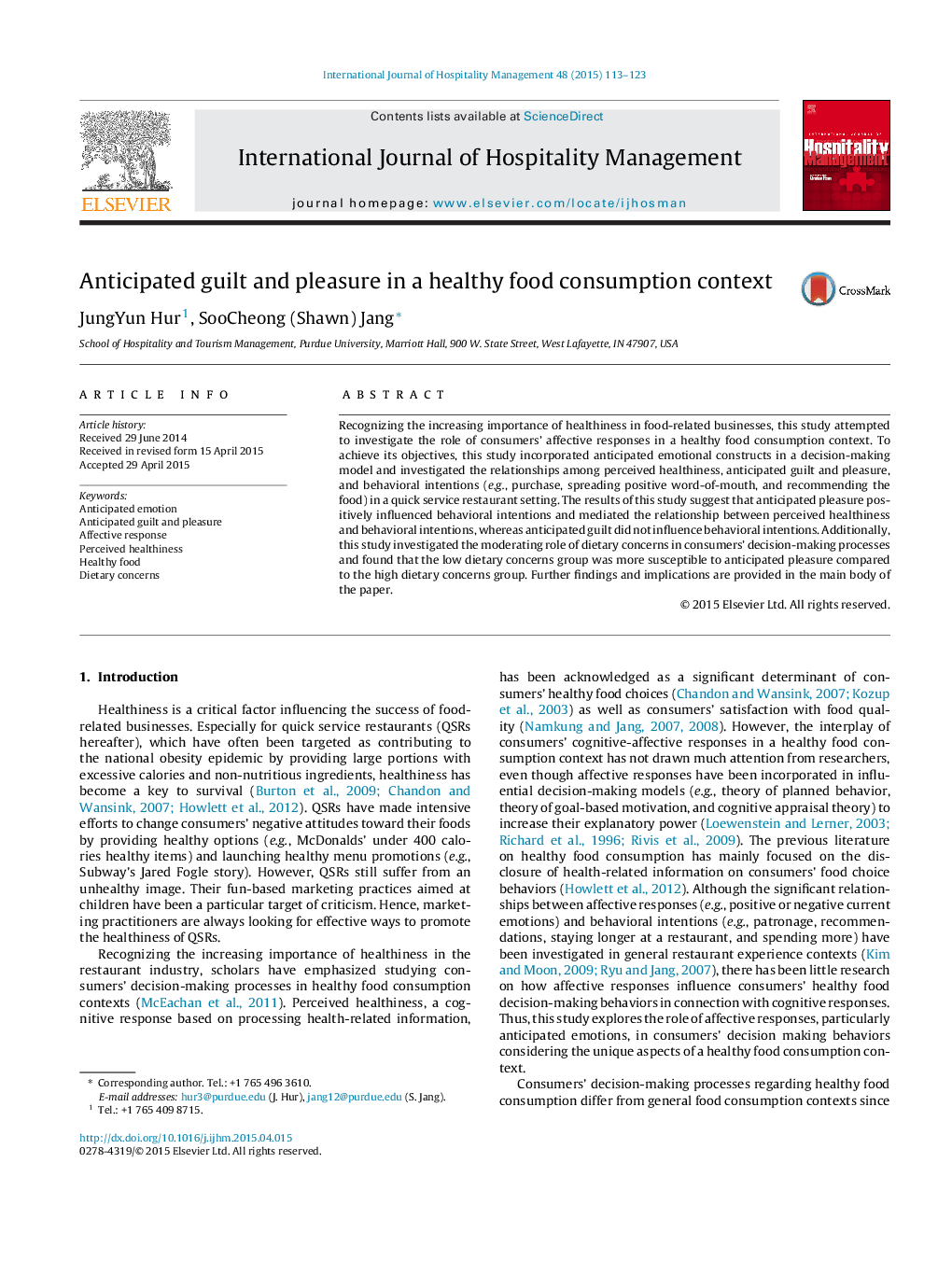| Article ID | Journal | Published Year | Pages | File Type |
|---|---|---|---|---|
| 1009328 | International Journal of Hospitality Management | 2015 | 11 Pages |
Recognizing the increasing importance of healthiness in food-related businesses, this study attempted to investigate the role of consumers’ affective responses in a healthy food consumption context. To achieve its objectives, this study incorporated anticipated emotional constructs in a decision-making model and investigated the relationships among perceived healthiness, anticipated guilt and pleasure, and behavioral intentions (e.g., purchase, spreading positive word-of-mouth, and recommending the food) in a quick service restaurant setting. The results of this study suggest that anticipated pleasure positively influenced behavioral intentions and mediated the relationship between perceived healthiness and behavioral intentions, whereas anticipated guilt did not influence behavioral intentions. Additionally, this study investigated the moderating role of dietary concerns in consumers’ decision-making processes and found that the low dietary concerns group was more susceptible to anticipated pleasure compared to the high dietary concerns group. Further findings and implications are provided in the main body of the paper.
